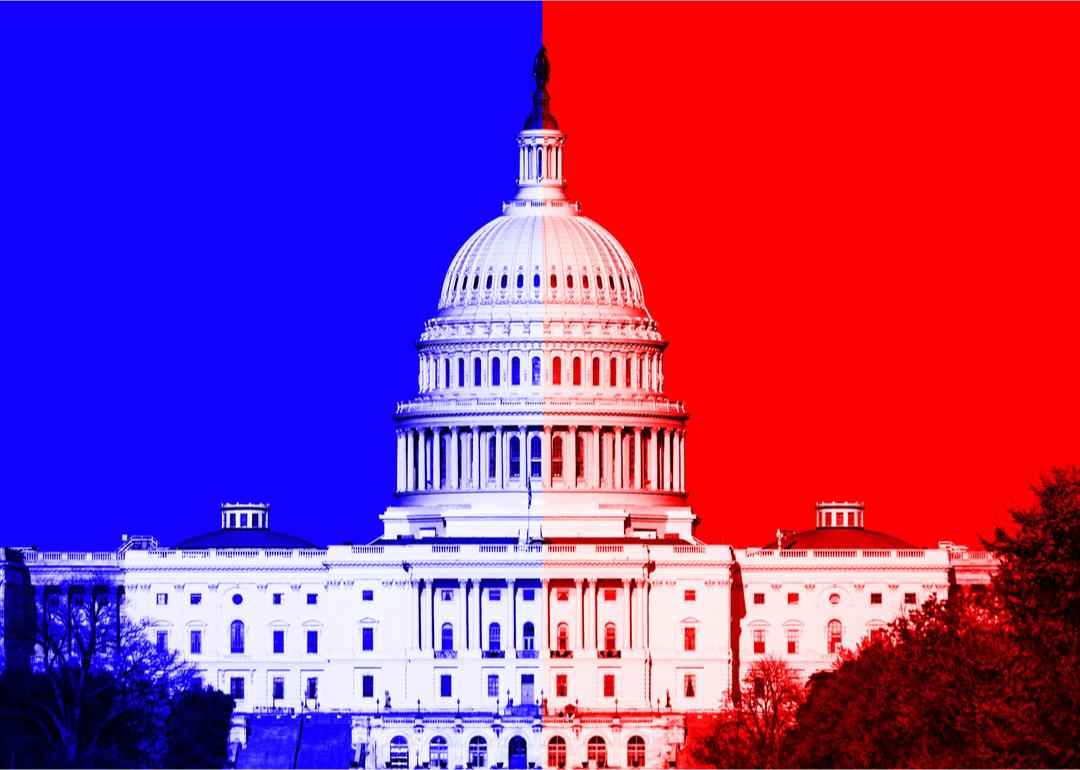
Bills that can't get passed with the current filibuster rules
Bills that can't get passed with the current filibuster rules
If you've been tuned into political news at all over the last couple of months, you've likely heard chatter about the filibuster. An arcane rule, the filibuster requires a minimum of 60 votes to pass a bill in the Senate. Traditionally, the rule has only been used in controversial issues—like the Civil Rights Act of 1964, and several anti-lynching acts—but in recent years it's become more frequently used.
This increase in use, and the fact that the rule could potentially put an end to every piece of important legislation the Democratic party would like to pass, has led to heated debates about whether or not the filibuster still has a role in our government. As it is not required under the Constitution, the filibuster can be done away with at any time with a simple, 50 "yes" vote.
So why haven't Democrats gotten rid of the filibuster yet? The answer is a complicated one, but it boils down to this: With several senators holding out, they don't have the votes they need … yet.
As the debate churns on, Stacker compiled a list of 15 bills and issues that cannot be currently passed due to filibuster rules, using news reports and Congress data. From voting rights to LGBTQ+ protections to gun control, read on to see some of the most important issues affected by this obscure legislative rule.
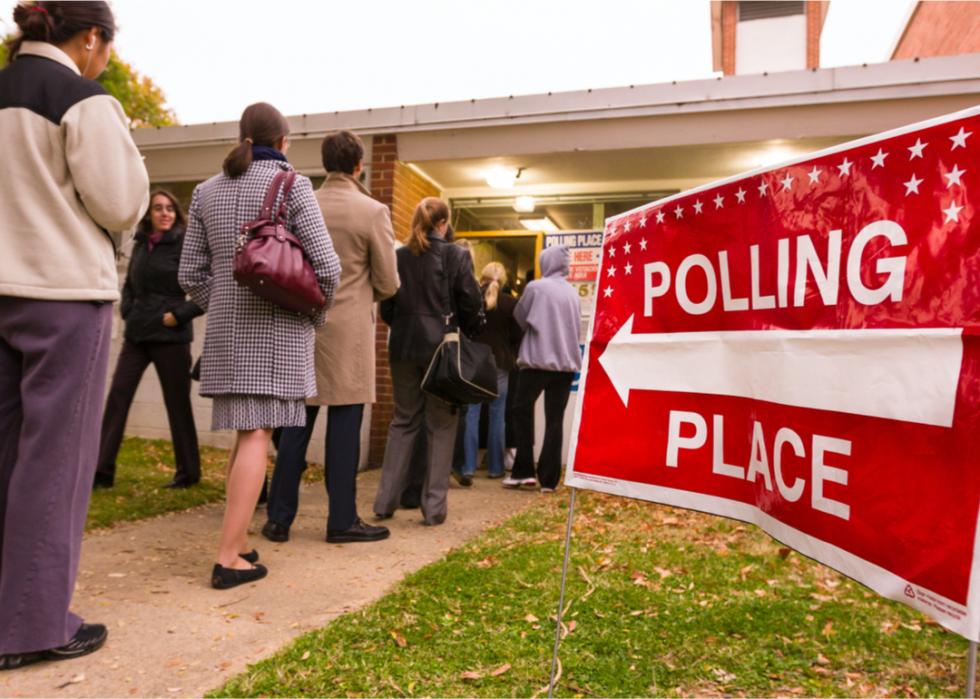
For the People Act
If passed, the For the People Act would have an unprecedented effect on voting rights. The bill includes key measures like automatic voter registration, restored voting rights to citizens with prior convictions, an end to partisan redistricting, a mandated two weeks of early voting in every state, and critical campaign finance reforms. The bill will likely die in Congress as not a single Republican is willing to support it, with many arguing it ensures Democrats will win every election going forward.
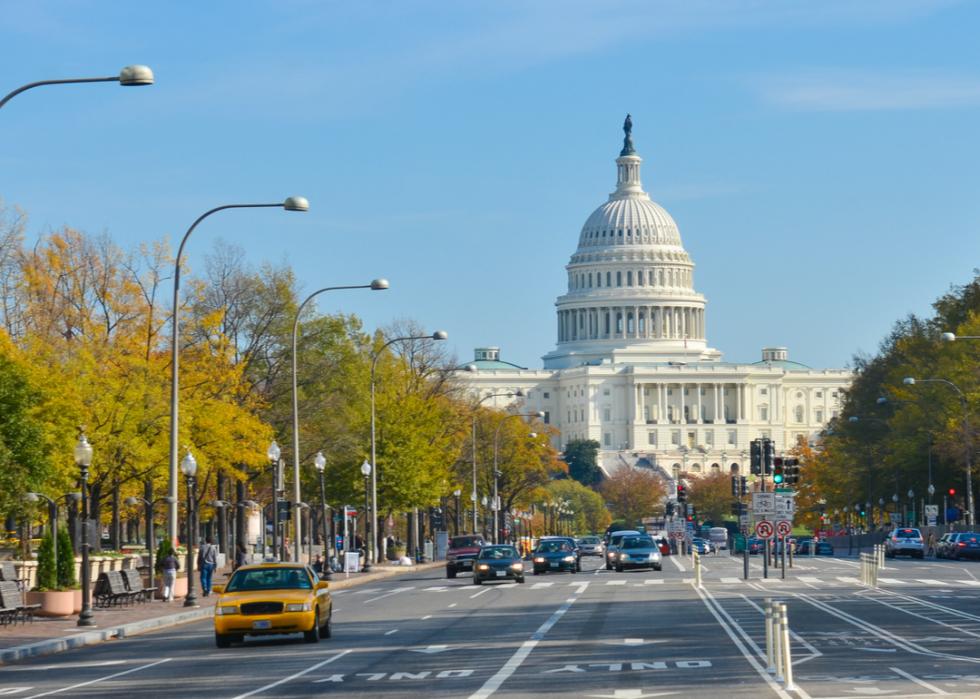
Statehood for Washington D.C.
With 700,000 residents in total– more than either Vermont or Wyoming—Washington D.C. pays more taxes per capita than any other place in the nation but does so without earning the advantages of statehood in return. Within the last year, the House voted to confirm Washington D.C. as the 51st state, but it seems unlikely that this will ever come to fruition. There are two reasons the filibuster will work against the bill: first, it would require a change to the Constitution which many are against, and second, as the city is largely Democratic, it would likely introduce two new Democratic senators to a closely divided Congress, which is something Republicans don’t want to see happen.

Expansion of the Supreme Court
While the prospect of expanding the Supreme Court was floated multiple times during the 2020 election season, it seems increasingly improbable that real action will actually be taken. Infighting among the Democratic party, with senators arguing their constituents aren’t interested in seeing it happen and that the court should not be politicized, means that a bill would not even have support from all 50 Democrats, regardless of how many Republican senators would vote affirmatively.

Gun restrictions
Historically a very partisan issue, it’s doubtful that any significant gun restriction bills will be passed by the Senate in the near future. Despite the fact that a set of bills strengthening background check requirements just made it through the House, the fact that the National Rifle Association (NRA) is such an important faction of the Republican party is enough to make these bills dead on arrival in the Senate.

Nationalized health care
In recent years a growing number of people have voiced their support for a single government program to provide health care for all citizens, whether that be nationalized health care or Medicare for all. Vice President Kamala Harris was even a vocal supporter of the Medicare for All bill when it was entertained in Congress in 2019. With more Democrats than Republicans on board with the idea, it would likely never stand up against a filibuster.

Universal pre-K
In his American Families Plan, President Joe Biden proposed offering free pre-K or daycare for all 3- and 4-year-olds. While not entirely a partisan issue, many Republicans have been vocal about their displeasure with the idea, calling it a “socialist idea,” with one senator, Marsha Blackburn, likening it to a Soviet Union program. Other critics point out that many families prefer privatized centers or one parent staying home, and that the plan might fare better if the government just offered families cold, hard cash instead.

College for All Act
Unlike some of the other bills on our list, the College for All Act isn’t necessarily dead upon arrival, but getting it through the Senate would be incredibly difficult. The bill, sponsored by Sen. Bernie Sanders, would make community colleges free for all and public colleges and universities tuition-free for families who earn under $125,000 per year. The Pew Research Center reports that some Republicans are in support of the idea, but not all, with opinions split by age and education level. This seems to indicate that Republican senators would be divided at best, and there may not be 10 who would rally behind the bill.
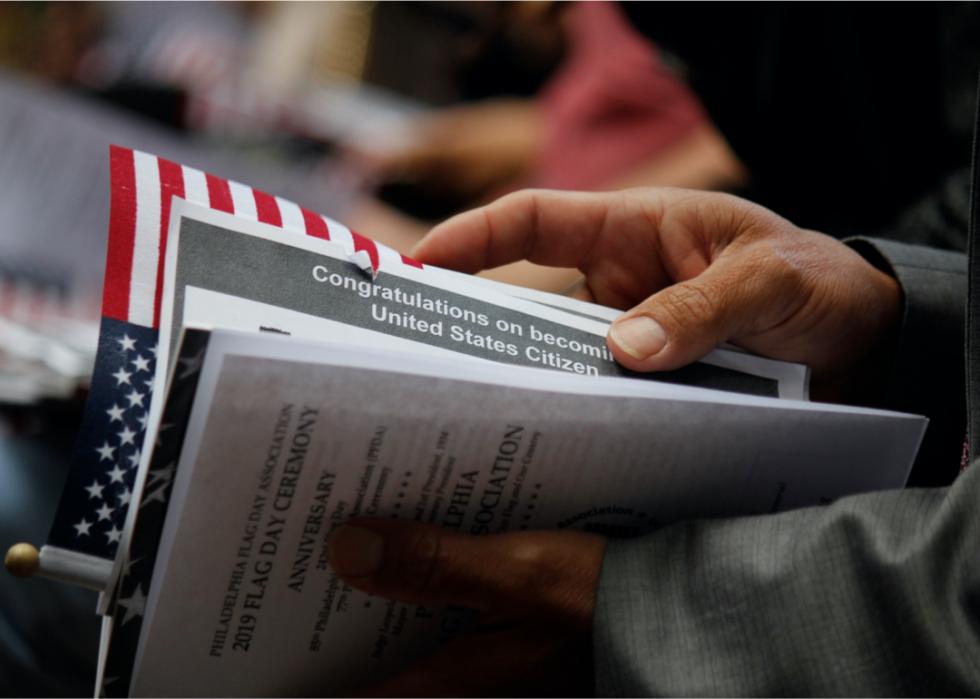
The US Citizenship Act of 2021
On the first day of his presidency, Joe Biden introduced a bill that would provide a pathway to residency and citizenship for some 11 million unauthorized immigrants and their children. A number of Senate Republicans have called the bill a “non-starter,” saying it would encourage more unauthorized immigration and essentially allow people to “skip the line.” This comes even as three-quarters of Americans support the idea of legal status for these immigrants.
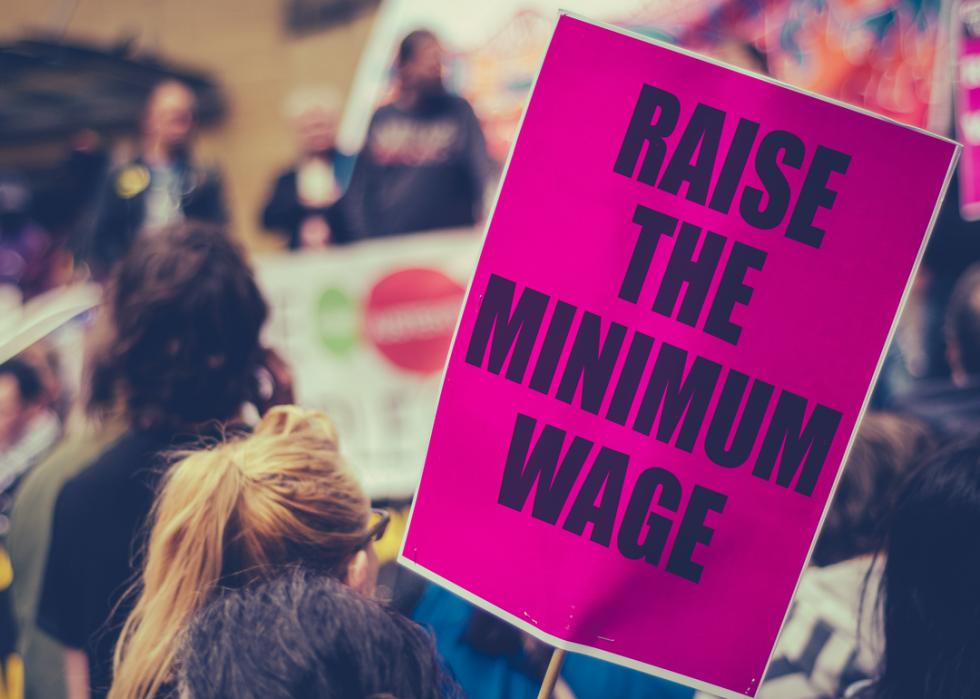
Minimum wage increase
Earlier this year, a proposed minimum wage hike that would have brought hourly rates to $15 was squashed by the filibuster. At this point, it seems improbable that a bump in the minimum wage, at least one of this size, will ever pass under current filibuster rules, as senators on both sides of the aisle claim it will cause the loss of 1.4 million jobs around the country.

George Floyd Justice in Policing Act
The conviction of Derek Chauvin for the murder of George Floyd has brought renewed attention to the George Floyd Justice in Policing Act, which seeks to ban chokeholds and qualified immunity for law enforcement officers, among other police reform measures. Despite support from citizens, the bill is facing an uphill battle in the Senate, as Republicans are largely backing a plan that has been brought to the floor by Senator Tim Scott that shares some provisions.
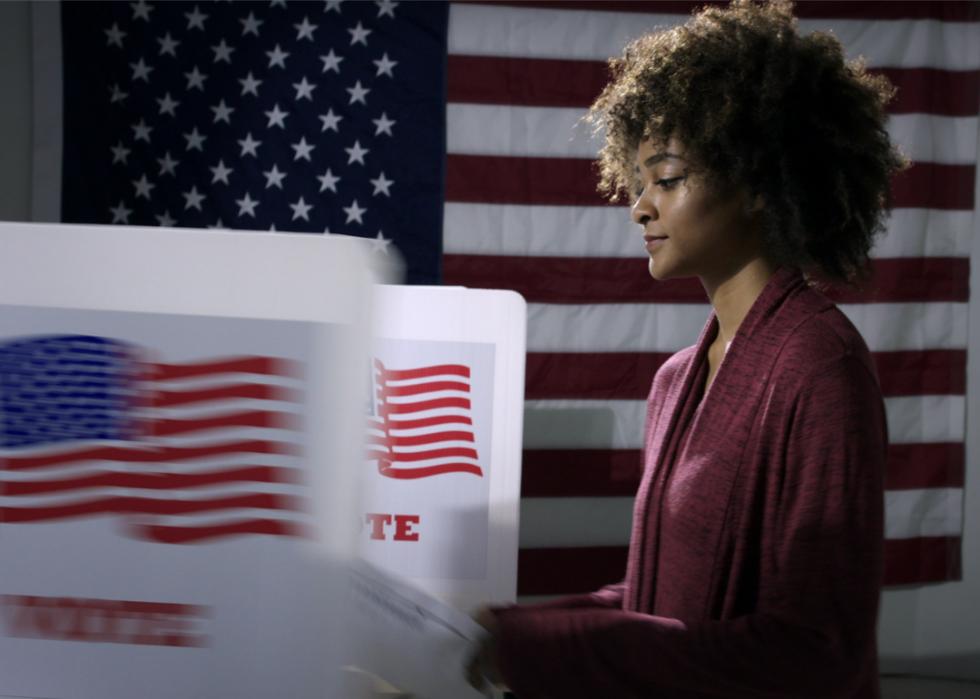
John Lewis Voting Rights Advancement Act
The John Lewis Voting Rights Advancement Act would restore preclearance (or the act of “pre-clearing” election rules with the federal government before putting them in place) in several states with a history of racist voting laws, like Georgia, and would make it easier to enforce preclearance on other states if the need arises. The bill has a larger chance of passing than the For the People Act, but still faces a lot of opposition from Republicans who worry it might be unconstitutional.

End Polluter Welfare Act
Bernie Sanders and Ilhan Omar are co-sponsoring the End Polluter Welfare Act, which would eliminate more than $150 billion in tax loopholes and federal subsidies for fossil fuel companies. This is not the first time an act of this type has been introduced. However, the bills almost always fail in Congress, as Republican senators advocate for fossil fuels, as do some Democrats who represent fossil-fuel-producing states.

Sweeping climate change reform
A large number of sweeping climate change reforms are sure to be dropped over filibuster rules after Republicans call them “one size fits all.” President Biden is attempting to cut greenhouse gas emissions, clean up electricity standards, and reduce toxic chemicals, among other things. And while the right seems to be considering some of these restrictions, they’ve dismissed others out of hand.

The Equality Act
In February, the House passed the Equality Act, which prohibited discrimination based upon sexual orientation and gender identity in areas like housing, jobs, and jury duty. A landmark bill, it passed through Congress largely along party lines with only three Republicans voting yes. This narrow margin of victory and lack of support from the right doesn’t indicate a very hopeful future for the bill in the Senate.
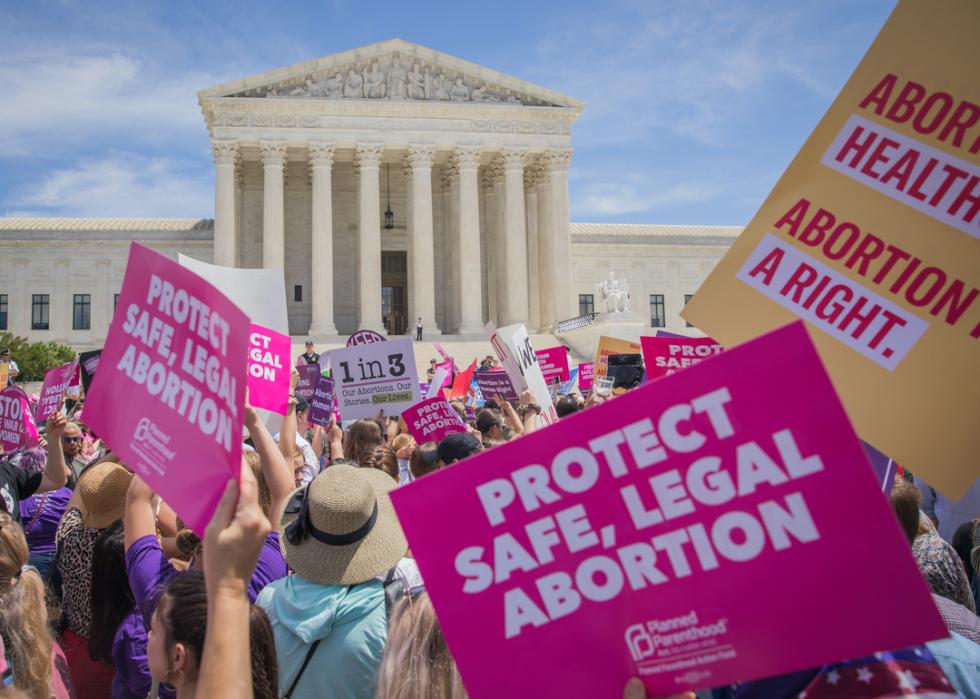
Women's Health Protection Act
The Women's Health Protection Act would protect a woman's right to an abortion in all 50 states and would do away with a number of restrictions, like additional in-person visits and mandatory medical procedures, that state and local governments impose on abortion providers. Given the right's long history of abortion opposition, it seems unlikely that this bill could ever pass under the current filibuster rules.



